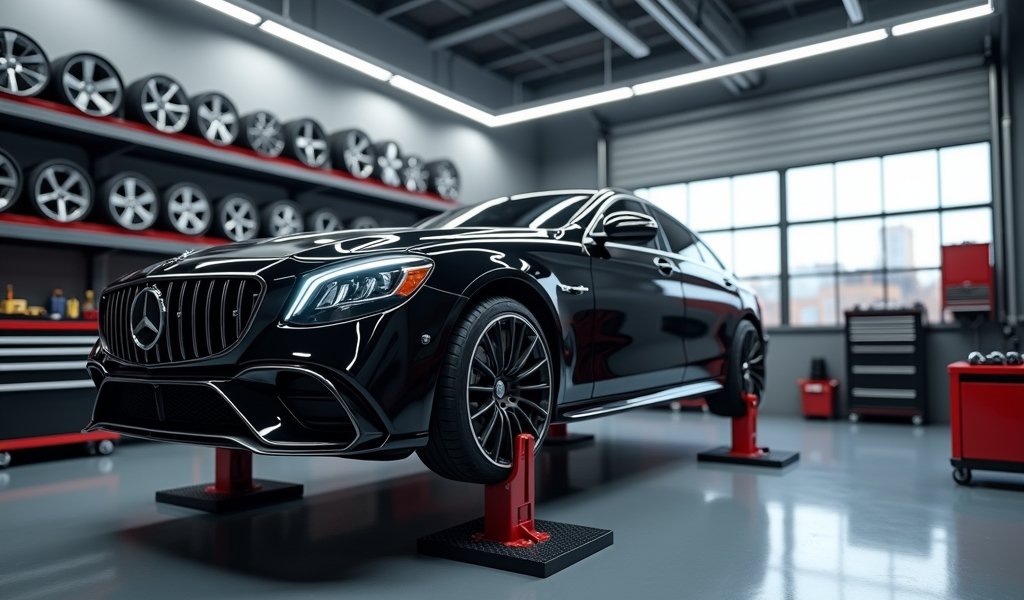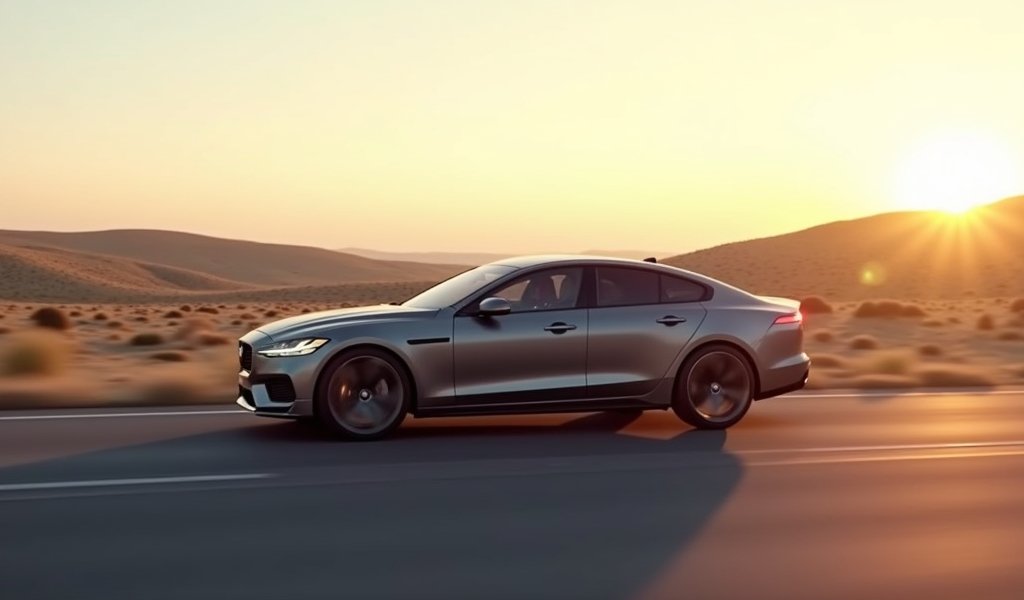Overview
This article evaluates seven leading tire brands (Michelin, Bridgestone, Continental, Goodyear, Pirelli, Yokohama, and Hankook), analyzing their unique strengths, standout models, and value propositions to help consumers make informed purchasing decisions. The guide emphasizes that selecting the right tire depends on specific driving needs, vehicle type, climate conditions, and budget considerations, with premium brands offering superior longevity and performance while value-oriented options provide competitive capabilities at lower price points.
Table of Contents
- Understanding Tire Quality: What Makes a Brand Stand Out?
- Factors to Consider When Choosing Tire Brands
- Michelin Tires: Premium Performance and Longevity
- Bridgestone Tires: Innovation and Reliability
- Continental Tires: German Engineering Excellence
- Goodyear Tires: All-American Quality
- Pirelli Tires: Performance-Oriented Precision
- Yokohama Tires: Balance of Performance and Value
- Hankook Tires: Affordable Quality Option
- Comparing the Top Tire Brands: Making Your Final Decision
- Conclusion: Investing in the Right Tires
- Frequently Asked Questions
Understanding Tire Quality: What Makes a Brand Stand Out?
Let’s face it, shopping for new tires isn’t exactly everyone’s idea of a good time. But those four rubber circles are literally where your car meets the road – and they matter a whole lot more than most folks realize. When it comes to the best tire brands for cars, not all rubber is created equal.
I’ve been working on cars for over 15 years now, and I can tell you that tires are one of the most impactful investments you’ll make for your vehicle. Quality tires affect everything – your safety, comfort, fuel efficiency, and even how long your suspension components last. Think of them as the foundation of your entire driving experience.
The top tire manufacturers invest millions in research and development, testing compounds and tread designs in conditions ranging from torrential downpours to icy mountain passes. They’re constantly pushing boundaries with new technologies that improve grip, reduce road noise, and extend tread life – sometimes all at once.
What separates the best from the rest? It boils down to a few key factors: consistent manufacturing quality, innovative technology, comprehensive testing, and a proven track record of performance across different conditions. The tire brands we’ll explore today have earned their reputation through decades of delivering on these fronts.
Factors to Consider When Choosing Tire Brands
Before we dive into specific brands, let’s talk about what you should actually be looking for. Picking the right tires isn’t just about brand names – it’s about finding the perfect match for your specific driving needs.
First up is your driving environment. Do you face harsh winters with snow and ice? Regular rainfall? Scorching summer heat? Each requires different tire characteristics. The best all-season tires for Florida will be different from what works in Michigan.
Then there’s your personal driving style. Are you all about fuel efficiency and a quiet ride? Or do you value responsive handling and performance? Be honest about how you actually drive, not how you think you should drive.
Your vehicle type matters tremendously too. A heavy SUV has different tire needs than a compact economy car or a high-performance sports car. Many manufacturers design tires specifically for certain vehicle classes.
Budget considerations can’t be ignored either. While premium tires generally offer better performance and longevity, some mid-range options provide excellent value. Remember that cheaper isn’t always economical if those tires wear out faster or reduce your fuel economy.
Finally, consider warranty and support. The best tire brands stand behind their products with solid mileage warranties and roadside assistance programs. This can be a deciding factor when comparing similarly priced options.

Michelin Tires: Premium Performance and Longevity
When you talk about the crème de la crème of tire brands, Michelin invariably leads the conversation. This French manufacturer has earned its stellar reputation through relentless innovation and exceptional quality control.
What makes Michelin stand out? For starters, their tires consistently deliver some of the best tread life in the industry. I’ve seen Michelin Defenders last well over 80,000 miles under proper care – that’s impressive longevity that offsets their higher initial cost.
Michelin’s commitment to safety is another standout quality. Their tires typically excel in wet braking tests, maintaining grip when other brands start to slip. The difference might be mere feet of stopping distance, but those feet could be the difference between a close call and a collision.
The brand is also known for its EverGrip technology, which features expanding rain grooves and emerging tread blocks that maintain wet traction even as the tire wears down. It’s clever engineering that addresses a common problem – most tires lose wet performance significantly as they age.
Comfort is where Michelin really shines for everyday drivers. Their premium touring tires like the Primacy series offer a remarkably quiet ride with excellent vibration dampening. If you spend a lot of time on the highway, you’ll appreciate the reduced noise fatigue.
Best Michelin models to consider:
- Michelin Defender T+H: Outstanding all-season touring tire with exceptional tread life
- Michelin Pilot Sport 4S: The gold standard for high-performance summer tires
- Michelin CrossClimate 2: Revolutionary all-season tire with genuine winter capabilities
Bridgestone Tires: Innovation and Reliability
As Japan’s largest tire manufacturer, Bridgestone has earned its place among the best tire brands for cars through consistent quality and technological innovation. They’ve been pushing boundaries since 1931, and their commitment to research keeps them at the forefront of tire technology.
Bridgestone tires tend to excel in handling precision and responsiveness. Their advanced rubber compounds and tread designs create tires that communicate road feedback effectively without sacrificing comfort. This makes them popular choices for drivers who enjoy a more engaged driving experience.
The company’s DriveGuard technology deserves special mention – these run-flat tires can be driven up to 50 miles at 50 mph after a puncture. For many drivers, especially those who frequently travel in areas where roadside assistance might be delayed, this feature offers valuable peace of mind.
Bridgestone’s all-season offerings, particularly the Turanza series, strike an excellent balance between wet performance, dry handling, and reasonable winter capability. They’re not specialized winter tires, but they handle light snow conditions competently – making them ideal for regions with mild winters.
Environmental consciousness is becoming another Bridgestone hallmark. Their Ecopia line focuses on reduced rolling resistance for better fuel economy, while their manufacturing processes increasingly emphasize sustainability. As environmental concerns grow, Bridgestone’s commitment to ecological responsibility represents forward-thinking tire development.
Best Bridgestone models to consider:
- Bridgestone Turanza QuietTrack: Comfort-focused touring tire with excellent noise reduction
- Bridgestone Potenza Sport: High-performance tire with exceptional dry handling
- Bridgestone Blizzak WS90: Industry-leading winter tire for severe snow conditions
Continental Tires: German Engineering Excellence
Continental brings that famous German engineering precision to tire manufacturing, and the results speak for themselves. With over 150 years of tire-making experience, Continental has perfected the balance between performance, safety, and value.
What impresses me most about Continental tires is their wet-weather performance. Their tread designs and rubber compounds consistently deliver shorter stopping distances and better handling in rainy conditions compared to many competitors. If you live in a rainy climate, Continental deserves serious consideration.
Continental’s TrueContact Tour and PureContact LS models demonstrate their ability to create tires that last. These touring tires feature DWS (Dry, Wet, Snow) indicators that visually show drivers when the tire’s performance in specific conditions is reduced due to wear – a thoughtful feature that promotes safety.
Technology integration is becoming Continental’s forte. They’re developing intelligent tires with sensors that monitor inflation, temperature, and tread depth, communicating this data to vehicle systems. As cars become more connected, Continental is positioning itself at the intersection of tire performance and smart technology.
For performance enthusiasts, the ExtremeContact series offers exceptional handling characteristics without the harsh ride quality that performance tires often bring. It’s this ability to minimize trade-offs that makes Continental a sophisticated choice for discerning drivers.
Best Continental models to consider:
- Continental PureContact LS: Premium touring tire with excellent all-around capabilities
- Continental ExtremeContact Sport: High-performance tire with balanced wet and dry handling
- Continental TerrainContact A/T: Refined all-terrain tire that remains civilized on pavement
Goodyear Tires: All-American Quality

Goodyear, with its iconic blimp and All-American heritage, has been a cornerstone of the tire industry since 1898. What’s kept them relevant for over a century is their ability to evolve while maintaining the reliability that built their reputation.
Durability is Goodyear’s calling card. Their tires are engineered to handle the diverse and often challenging conditions of American roads, from the scorching highways of Arizona to the pothole-riddled streets of Michigan. This focus on robustness means their tires often provide excellent value over their lifespan.
The Assurance WeatherReady exemplifies Goodyear’s practical innovation – it’s an all-season tire that’s actually earned the severe snow service rating (the snowflake symbol). For drivers in variable climates who don’t want to switch between summer and winter tires, this versatility is invaluable.
Goodyear has also been pioneering in developing specialized rubber compounds. Their Eagle series features compounds that get grippier as they heat up during spirited driving, while their Assurance lineup emphasizes compounds that maintain flexibility in colder temperatures for better winter performance.
The brand’s commitment to American manufacturing is worth noting too. While many tire companies have moved production overseas, Goodyear maintains significant manufacturing in the United States. For some consumers, supporting domestic production is an important consideration.
Best Goodyear models to consider:
- Goodyear Assurance WeatherReady: True all-weather capability with severe snow rating
- Goodyear Eagle Exhilarate: Ultra-high performance with surprising all-season capability
- Goodyear Wrangler All-Terrain Adventure: Durable all-terrain tire with civilized on-road manners
Pirelli Tires: Performance-Oriented Precision
When Formula 1 cars scream around tracks worldwide, they’re riding on Pirelli rubber. This Italian manufacturer has leveraged its motorsport experience to create street tires that deliver exceptional performance, particularly for luxury and high-performance vehicles.
Pirelli’s performance focus is evident in their P Zero line, which offers razor-sharp handling response and incredible grip limits. These characteristics make Pirelli a favorite among enthusiast drivers and a common choice for factory equipment on premium sports cars from manufacturers like Porsche, Ferrari, and Lamborghini.
What’s impressive is how Pirelli has translated this performance DNA across their entire product range. Even their all-season touring tires like the Cinturato P7 All Season Plus II exhibit handling characteristics that feel a cut above most comfort-oriented competitors.
Noise reduction technology is a recent Pirelli innovation worth mentioning. Their Noise Cancelling System uses a polyurethane sponge inside the tire to absorb vibrations and road noise – a feature particularly appreciated in luxury vehicles where cabin quietness is prized.
The brand’s Scorpion lineup for SUVs and crossovers deserves recognition as well. These tires manage the challenging task of providing responsive handling despite the higher centers of gravity and greater weights of modern SUVs – no small engineering feat.
Best Pirelli models to consider:
- Pirelli P Zero: Ultra-high performance summer tire with exceptional handling
- Pirelli Cinturato P7 All Season Plus II: Performance-oriented all-season touring tire
- Pirelli Scorpion Verde All Season Plus II: Premium SUV/crossover tire with low rolling resistance
Yokohama Tires: Balance of Performance and Value
Yokohama represents that sweet spot many drivers are looking for – performance that rivals premium brands but often at a more accessible price point. This Japanese manufacturer has been steadily gaining market share by delivering excellent all-around capability without the premium price tag.
The ADVAN line showcases Yokohama’s performance capabilities, with grip levels that compete with tires costing significantly more. Their proprietary orange oil technology allows for improved grip without sacrificing wear characteristics – a common trade-off in high-performance tires.
For everyday drivers, the AVID Ascend GT delivers exceptional all-season performance with a 65,000-mile tread life warranty. This combination of longevity and capability makes it one of the best values in the touring tire category.
Yokohama has also made significant strides in all-terrain tire development. Their Geolandar A/T G015 provides genuine off-road capability while maintaining reasonable road manners and noise levels – addressing a common complaint about all-terrain tires.
Environmental consciousness is becoming part of Yokohama’s identity as well. Their BluEarth line emphasizes eco-friendly manufacturing and reduced rolling resistance without compromising performance. It’s a forward-thinking approach that appeals to environmentally conscious consumers.
Best Yokohama models to consider:
- Yokohama AVID Ascend GT: Excellent all-season touring tire with long tread life
- Yokohama ADVAN Apex V601: High-performance summer tire with impressive grip
- Yokohama Geolandar A/T G015: Capable all-terrain tire with good on-road behavior
Hankook Tires: Affordable Quality Option
Don’t let Hankook’s value-oriented pricing fool you – this South Korean manufacturer has emerged as a serious contender in the tire market by delivering surprising performance at competitive price points. They’ve transformed from a budget brand to a respected name through consistent quality improvements.
Hankook’s strength lies in creating well-rounded tires that perform competently across multiple categories without excelling in any single one. This makes them ideal for drivers who want good overall performance without paying a premium for capabilities they might not fully utilize.
The Kinergy PT (H737) exemplifies this approach – it’s an all-season touring tire that delivers respectable wet and dry performance, reasonable snow capability, and a competitive 90,000-mile warranty. For many daily drivers, this balanced capability is exactly what they need.
For enthusiasts on a budget, the Ventus line offers performance that punches above its weight class. The Ventus V12 evo2, in particular, delivers handling characteristics that approach those of much more expensive options from premium brands.
Hankook has also made significant inroads as original equipment on new vehicles. Being selected by manufacturers like Ford, Toyota, and even premium brands like Audi speaks to their quality control and reliability. These OE relationships have helped elevate the brand’s reputation.
Best Hankook models to consider:
- Hankook Kinergy PT (H737): Long-lasting all-season touring tire with good comfort
- Hankook Ventus V12 evo2: High-performance summer tire with excellent value
- Hankook Dynapro AT2: Affordable all-terrain option with good off-road capability
Comparing the Top Tire Brands: Making Your Final Decision
Now that we’ve explored the best tire brands for cars individually, how do you make that final decision? Let me break down some direct comparisons that might help clarify your choice.
For premium comfort and longevity, Michelin and Continental lead the pack. If maximum tread life and a quiet, refined ride are your top priorities, these brands justify their higher price tags. Michelin typically edges out Continental in longevity, while Continental often has a slight advantage in wet performance.
For performance-oriented driving, Pirelli and Bridgestone offer the most compelling options. Pirelli generally provides more immediate grip and sharper handling, while Bridgestone often delivers better all-around capability and slightly longer wear. Your specific driving style will determine which approach suits you better.
For value-conscious shoppers seeking good all-around performance, Goodyear, Yokohama, and Hankook present excellent options. Goodyear typically offers the most well-rounded performance of the three, Yokohama often edges ahead in handling response, while Hankook usually wins on price while still delivering respectable capability.
Winter performance varies significantly across brands. Bridgestone’s Blizzak line, Continental’s VikingContact, and Michelin’s X-Ice series consistently lead winter tire tests. If you live in a region with severe winters, specialized winter tires from these manufacturers are worth the investment.
For SUVs and crossovers, Continental and Michelin typically offer the best combination of comfort and capability, while Goodyear and Pirelli excel in providing more rugged options for those who occasionally venture off pavement.
Remember that within each brand, there are multiple product lines designed for different priorities. Don’t just choose a brand – select the specific model that aligns with your driving needs, vehicle type, and typical conditions.
Conclusion: Investing in the Right Tires
Choosing from among the best tire brands for cars isn’t just about brand prestige – it’s about finding the right partner for your specific driving journey. Your tires are quite literally where the rubber meets the road, influencing everything from safety to comfort to fuel economy.
Premium brands like Michelin and Continental justify their higher prices through exceptional longevity, refined performance, and cutting-edge technology. Mid-tier options like Bridgestone, Goodyear, and Pirelli offer excellent performance with specific strengths that might align perfectly with your priorities. Value-conscious brands like Yokohama and Hankook provide impressive capability at more accessible price points.
The “best” tire ultimately depends on your unique combination of vehicle, driving style, climate, and budget. A sports car enthusiast in Southern California has vastly different needs than a family SUV driver in Minnesota. Be honest about your actual driving habits rather than aspirational ones.
Remember that proper maintenance – regular rotation, alignment, and inflation checks – will maximize the performance and lifespan of whatever tires you choose. Even the best tires will underperform if neglected.
At Knows Your Car, we’re committed to helping you make informed decisions about every aspect of your vehicle’s care. Your tires represent one of the most impactful investments in your driving experience, and choosing wisely pays dividends in safety, comfort, and long-term value.
Whatever brand you select, remember that modern tires are engineering marvels that have benefited from decades of research and development. The gap between good and great often comes down to which specific performance aspects matter most to you. Choose accordingly, and enjoy the road ahead!
Frequently Asked Questions
Which tire brand lasts the longest?
Michelin consistently ranks highest for longevity, particularly their Defender line. Many Michelin tires come with 70,000-80,000 mile warranties, reflecting their confidence in their products’ durability.
Are premium tire brands worth the extra cost?
Premium tires typically offer better performance, longer tread life, and enhanced safety features that can justify their higher initial cost. When calculated by cost-per-mile and factoring in improved fuel economy, they often represent better long-term value.
Which tire brand is best for wet weather driving?
Continental and Michelin consistently lead in wet performance testing. Continental’s tread designs and rubber compounds are particularly effective at evacuating water and maintaining grip on wet roads.
Can budget tire brands compare to premium options?
Brands like Hankook offer impressive performance at lower price points, though they may not match premium brands in all categories. For many drivers, these value-oriented options provide the best balance of performance and price.
How often should I replace my tires regardless of brand?
Most experts recommend replacing tires every 6-10 years regardless of tread depth due to rubber degradation. Regular inspection is important as performance deteriorates significantly when tread depth falls below 4/32 of an inch.

